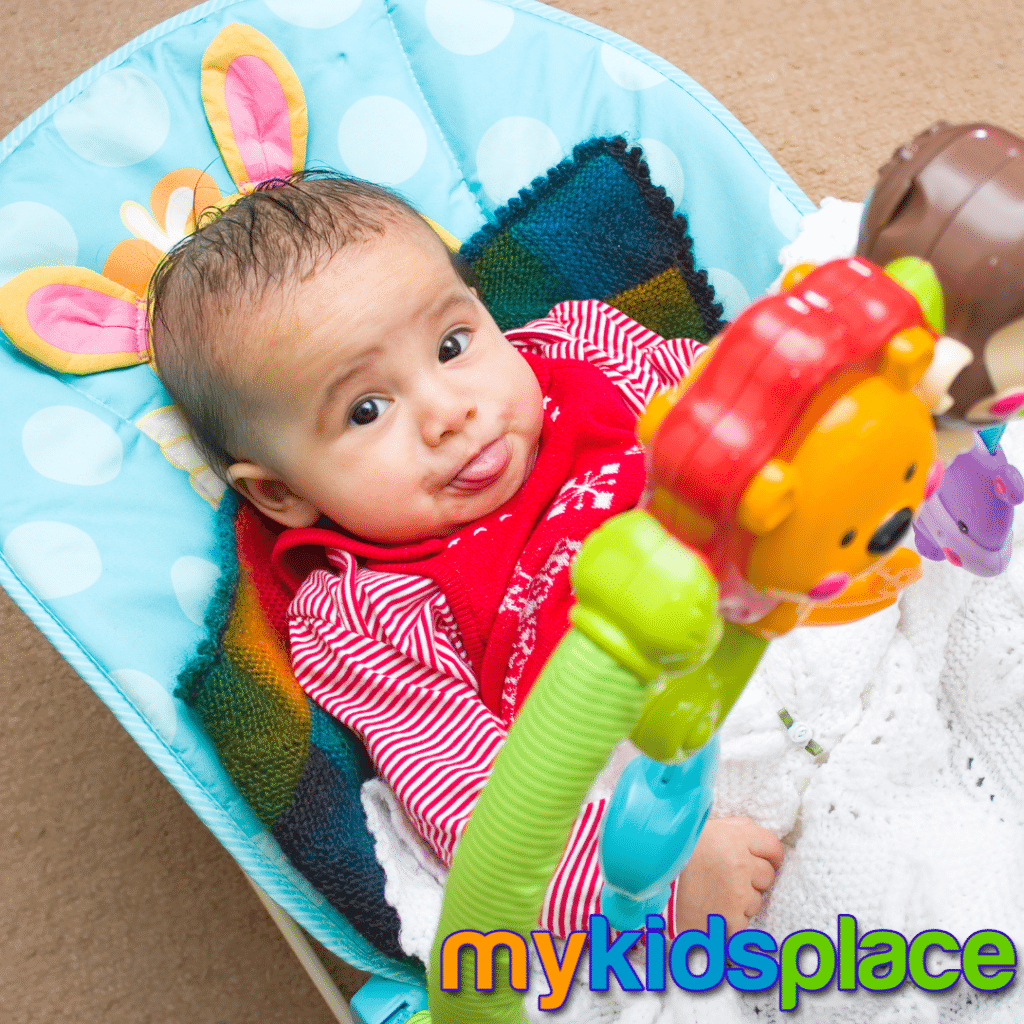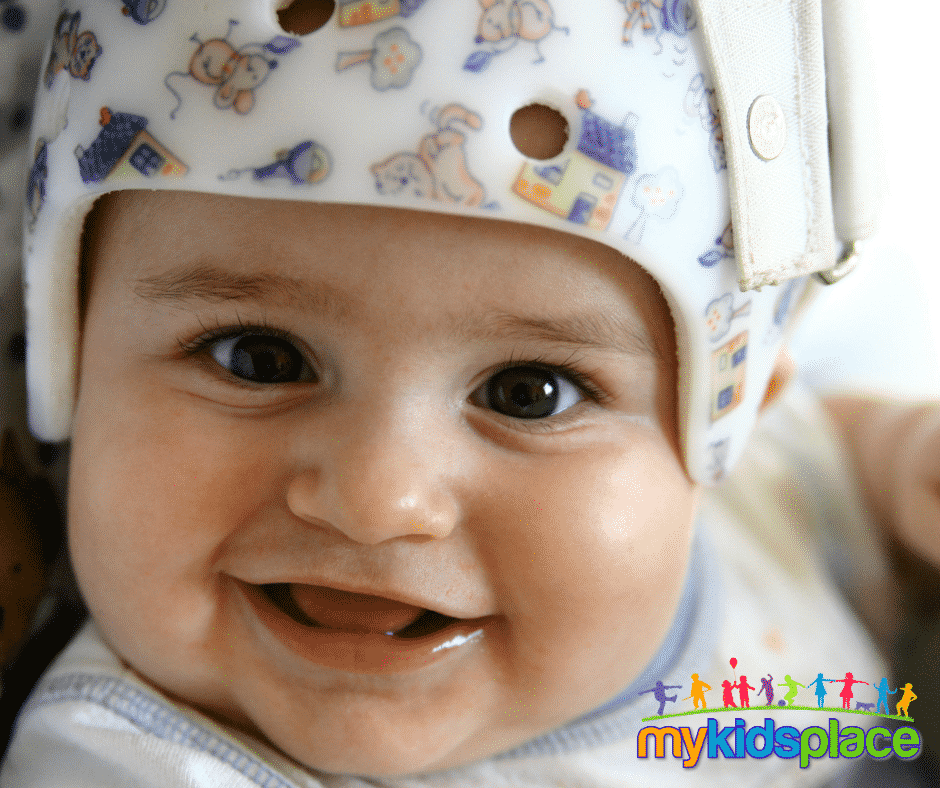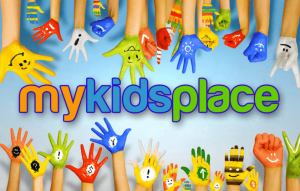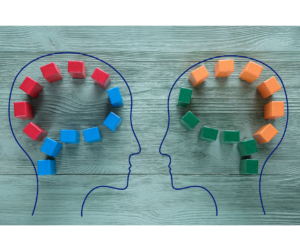
Container Baby Syndrome, or CBS for short, is a collection of signs and symptoms related developmental delays and related to an infant spending extended amounts of time in a ‘container.’ A container is any piece of equipment that “contains” your baby into one place, and keeps them in one position. Containers include infant walkers, bouncers, jumpers, car seats, strollers, infant seats (i.e. Bumbo® seats), and exersaucers, among others. Babies that spend the majority of their days in a container are at increased risk of developmental delays, musculoskeletal deformities, and behavioral concerns.
Why? Containers confine babies.
In containers, infants have a lack of available movements—movement is the driver of your baby’s development. Functional mobility including rolling, pivoting, reaching for toys, etc. facilitates the development of your baby’s strength throughout their whole body. Each minute they spend on their tummy, unrestricted, is a workout for their body and brain.
Early motor milestones are the basis of the more “exciting” motor skills that come later, like crawling and walking. As your baby meets their motor milestones, they will work on movements that help integrate their developmental reflexes, practice problem solving when figuring out how to reach desired objects, develop fine-motor control, increase their frustration tolerance, and many more skills that will allow them to reach their full, functional potential.
What deficits might ‘container babies’ present with?
Gross motor delays
Babies that are not exposed to tummy time many times throughout the day do not build strength in their trunk necessary for rolling, crawling, and sitting with good balance. Jumpers and walkers prevent your baby from developing balance reactions because they are held up by harnesses, therefore, they do not experience the sensation of falling and do not need to use their postural muscles to stay upright. This results in delayed protective reactions causing a delay in safe walking and other higher level gross motor skills.
Fine motor delays
Babies that do not work on pushing and pulling their bodies around during floor time do not build strength proximally at their shoulders or distally in their hands. This makes later skills more difficult and delays integration of some infantile reflexes. Without hand strength and a strong shoulder to stabilize the arm, infants will have difficulty learning to feed themselves. As they age, they may have difficulty helping with getting dressed or writing their name.
Musculoskeletal abnormalities
Babies that spend a significant time with their head resting on a surface or with their head facing one direction may develop plagiocephaly or brachycephaly (flat head syndrome), or torticollis (wry neck). These conditions can cause glasses or helmets to fit incorrectly in the future, and cause asymmetries in strength and coordination.

Visual-motor concerns
When babies movements are restricted, they do not practice reaching across midline, tracking objects, and this can result in oculomotor abnormalities. This can contribute to delays with fine motor skills, overall coordination, and difficulty reading or participating in school.
What can you do to help as a parent?
- Hold your baby in a carrier or sling instead of taking the car seat out of the car while you run errands or go to appointments—Your baby will not be putting pressure on their head, and you have the chance to build a strong attachment with them
- Practice tummy time and floor time many times whenever your baby is awake
- Use a playpen where your baby can move freely if you need to keep them in one place
Finally, if you are worried about your child’s development, discuss your concerns with your pediatrician and ask for an Occupational or Physical Therapy Evaluation!



